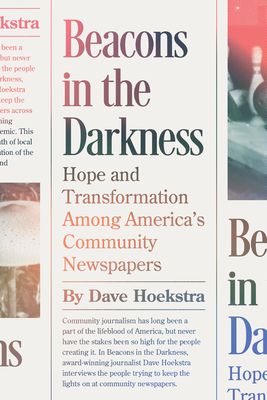Home
Moderate Modernity: the Newspaper Tempo and Transformation of Weimar Democracy
Loading Inventory...
Barnes and Noble
Moderate Modernity: the Newspaper Tempo and Transformation of Weimar Democracy
Current price: $75.00


Barnes and Noble
Moderate Modernity: the Newspaper Tempo and Transformation of Weimar Democracy
Current price: $75.00
Loading Inventory...
Size: Hardcover
*Product Information may vary - to confirm product availability, pricing, and additional information please contact Barnes and Noble
Focusing on the fate of a Berlin-based newspaper during the 1920s and 1930s,
Moderate Modernity: The Newspaper Tempo and the Transformation of Weimar Democracy
chronicles the transformation of a vibrant and liberal society into an oppressive and authoritarian dictatorship.
Tempo
proclaimed itself as “Germany’s most modern newspaper” and attempted to capture the spirit of Weimar Berlin, giving a voice to a forward-looking generation that had grown up under the Weimar Republic’s new democratic order. The newspaper celebrated modern technology, spectator sports, and American consumer products, constructing an optimistic vision of Germany’s future as a liberal consumer society anchored in Western values. The newspaper’s idea of a modern, democratic Germany was undermined by the political and economic crises that hit Germany at the beginning of the 1930s. The way the newspaper described German democracy changed under these pressures. Flappers, American fridges, and modern musicthe things that
had once marshalled as representatives of a German futurewere now rejected by the newspaper as emblems of a bygone age. The changes in
’s vision of Germany’s future show that descriptions of Weimar politics as a standoff between upright democrats and rabid extremists do not do justice to the historical complexity of the period. Rather, we need to accept the Nazis as a lethal product of a German democracy itself. The history of
teaches us how liberal democracies can create and nurture their own worst enemies.
Moderate Modernity: The Newspaper Tempo and the Transformation of Weimar Democracy
chronicles the transformation of a vibrant and liberal society into an oppressive and authoritarian dictatorship.
Tempo
proclaimed itself as “Germany’s most modern newspaper” and attempted to capture the spirit of Weimar Berlin, giving a voice to a forward-looking generation that had grown up under the Weimar Republic’s new democratic order. The newspaper celebrated modern technology, spectator sports, and American consumer products, constructing an optimistic vision of Germany’s future as a liberal consumer society anchored in Western values. The newspaper’s idea of a modern, democratic Germany was undermined by the political and economic crises that hit Germany at the beginning of the 1930s. The way the newspaper described German democracy changed under these pressures. Flappers, American fridges, and modern musicthe things that
had once marshalled as representatives of a German futurewere now rejected by the newspaper as emblems of a bygone age. The changes in
’s vision of Germany’s future show that descriptions of Weimar politics as a standoff between upright democrats and rabid extremists do not do justice to the historical complexity of the period. Rather, we need to accept the Nazis as a lethal product of a German democracy itself. The history of
teaches us how liberal democracies can create and nurture their own worst enemies.


















